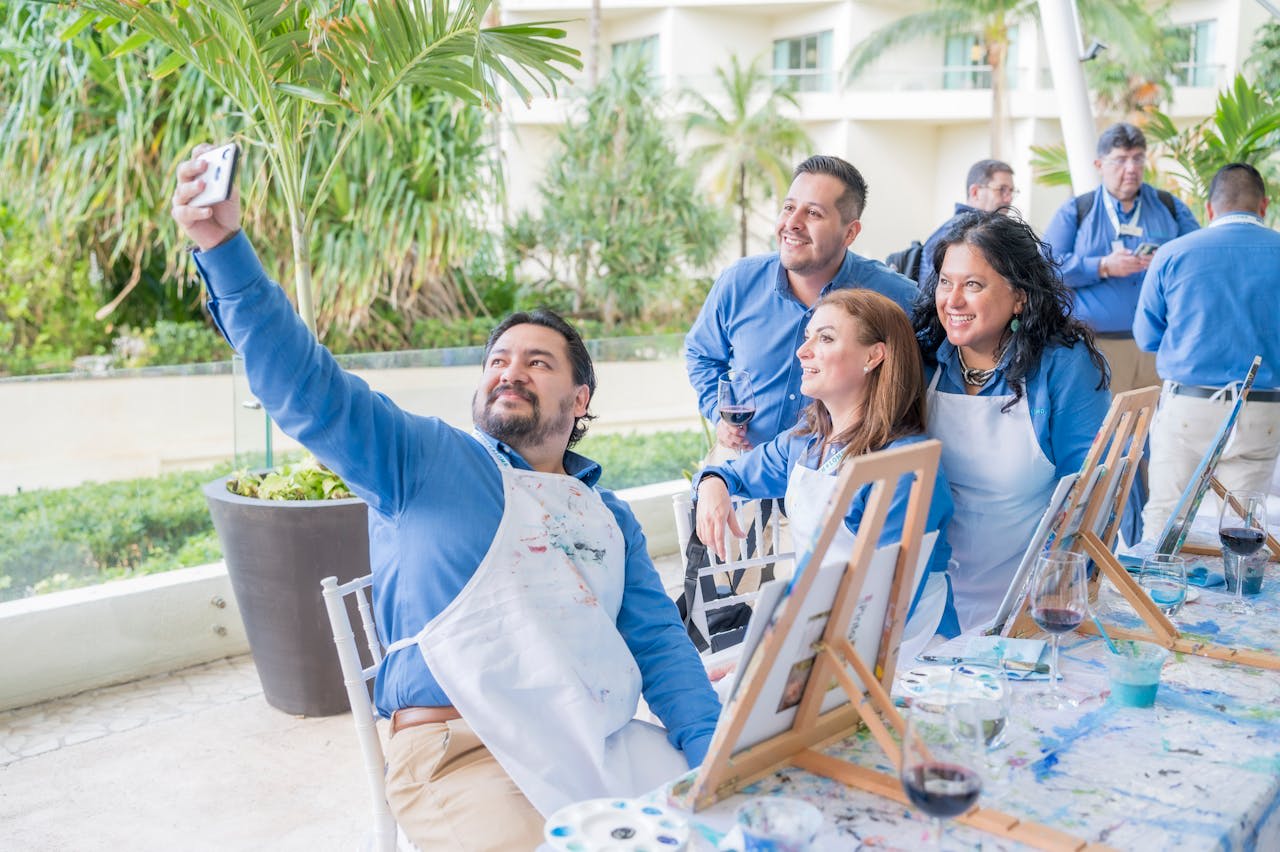5 Key Factors to Consider When Planning Corporate Retreats

Every corporate retreat presents a unique opportunity to rejuvenate teams, refocus on goals, and strengthen connections. As an event planner, your expertise is essential to designing a retreat that fosters productivity and connection rather than a forgettable getaway. Event planners like you are tasked with creating a seamless experience that combines purpose with relaxation in a way that resonates with attendees. These five key factors are the foundation of a successful corporate retreat, allowing you to craft an experience that supports the client’s vision and exceeds expectations. Elevate your planning skills and learn how to create a corporate retreat that teams will talk about for years to come.
1. Define Clear Event Goals and Objectives
A corporate retreat isn’t exactly meant to be a vacation or sightseeing trip. But it absolutely has to be action-packed with high-value interactions and engagement. To create those meaningful connections for your corporate event client, you’ll need to set goals and objectives. A corporate retreat could foster team bonding and professional development for team members or provide a quiet setting for focused strategic planning. By understanding the goal, choosing the appropriate venue, activities, entertainment, and schedule becomes easier.
2. Choose the Right Location
The venue is what sets the mood and atmosphere for the corporate retreat. It needs to be the right size and in a good location to be accessible for attendees. It needs to have adequate facilities for the activities planned. Consider a NYC venue that offers additional services, such as catering, AV, hotel accommodations, lighting, decor, and furniture setup. A modern trend is to choose a venue that can provide facilities for work and leisure, encouraging a balance between work and life. These venues have separate spaces for the professional sessions in the schedule and the leisure activities planned. Another option is a venue that is close to multiple leisure activities. That way, attendees can mentally separate themselves from the corporate functions by leaving the venue for some relaxation and mental recharging.
3. Balance Work and Leisure
Modern professionals value their personal time and expect companies to have a healthy work/life balance. This can be challenging during a corporate retreat when professionals are away from their homes and families. As the retreat planner, it is your responsibility to create a schedule that encourages a balance between professional events and leisure activities. Leisure time does not have to be a happy hour with cocktails. Consider the type of retreat being planned and the purpose of the event. You could include a scrumptious relaxing breakfast in the morning. Attendees could be given free time to check out the nearby activities or tourist attractions.
4. Include Team-Building Activities
Create a schedule that includes team-building activities that allow co-workers and attendees to connect on a deeper level. While you can plan for traditional team-building activities, plenty of alternatives exist.
Here’s a list of engaging team-building activities for inspiration:
- Escape Room Challenge: Set up a physical or virtual escape room experience where teams work together to solve puzzles and "escape" within a time limit.
- Outdoor Scavenger Hunt: Organize a scavenger hunt around the retreat location, encouraging teamwork and creative problem-solving.
- Workshop in Cooking or Mixology: Host a cooking or cocktail-making class where teams create and enjoy their own dishes or drinks together.
- Trust-Building Exercises: Plan trust falls, blindfolded navigation, or other classic trust activities that encourage colleagues to rely on each other.
- Team Olympics: Arrange a series of fun, low-stakes competitions like relay races, trivia, and tug-of-war to inspire friendly competition.
- Creative Brainstorming Session: Facilitate a brainstorming workshop focused on real business challenges or future planning to boost engagement and creativity.
- Volunteer Project: Engage the team in a community service project, such as helping at a local charity or organizing a cleanup, fostering team spirit and social impact.
- Storytelling Session: Have team members share personal or professional stories to build empathy and understanding within the group.
- Wellness Workshop: Offer yoga, meditation, or wellness sessions to help teams relax and focus, encouraging long-term health and wellness habits.
5. Provide Opportunities for Feedback and Adjustments
A critical element of any event is collecting feedback from attendees post-event. After the corporate retreat, reach out to attendees and ask them about their experiences. This post-event engagement helps keep the retreat momentum going when attendees return to work. Ask what they thought worked and what didn’t. Find out if there were issues that need to be addressed for future retreats. With attendees' feedback, you can enhance the successful parts of the retreat and address the problems to improve for future events.

Improve Your Corporate Retreat Planning Skills at The Event Planner Expo 2025
Planning a successful corporate retreat hinges on aligning event goals with a thoughtful agenda, the right location, and a blend of work and leisure activities. Exploring trends, new venues, and interactive formats is essential for event planners wanting to take their retreats to the next level. By prioritizing these factors, companies can design retreats that boost productivity and create memorable experiences for attendees.
The Event Planner Expo provides an incredible arena for discovering innovative ways to enhance corporate retreats. Attending The Event Planner Expo opens doors to the latest industry tools, trends, and contacts, helping you create unforgettable retreats that achieve your client’s goals.
Buy your tickets today and transform the way you plan corporate events!